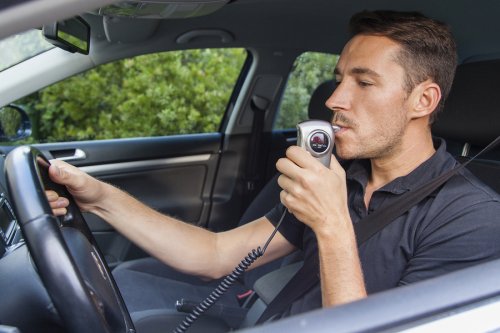-
Understanding Shock After a Serious Car Accident
After a car accident, shock is one of the serious conditions that can occur. This life-threatening condition requires immediate treatment, and if you hire an accident attorney in Baltimore to represent you in an injury case, he or she will ask if you were treated for shock as part of preparing for your lawsuit.
Shock occurs when the oxygen that is contained in the blood is not adequate to support the cells. It is associated with low blood pressure and can eventually lead to organ failure if it is not treated quickly. It is possible to have long-term or permanent injuries associated with shock if treatment is delayed. If you experience shock after a car accident, the emergency medical team may use oxygen therapy, IV fluids, blood transfusions, and medications to constrict your blood vessels to attempt to manage the condition.
-
Spotlight on Occupational Diseases
Workers’ compensation cases aren’t always about injuries. Illnesses that occurred in the workplace may also be covered. If you believe you are the victim of an occupational disease, then contact an attorney to see if you should file a workers’ compensation lawsuit in Baltimore .
An occupational disease is a chronic condition that was caused by activities done at work. Some of the diseases that could be occupational in nature include cancer, respiratory issues, hearing loss, and skin diseases. In some instances, depression and anxiety can also fall into this category. If you have such an illness, an attorney can help you determine if your employer could be held responsible and if you should file a workers’ compensation claim. The amount of money to which are entitled depends on a number of different factors, including how your illness impacts your ability to do your job now and in the future and the cost of your medical bills. Your attorney can guide you through the process as well as any necessary workers’ comp appeals that follow your initial claim.

-
Get the Facts About Workers’ Comp Appeals
If you file a workers’ comp claim in Baltimore , and you are notified that it has been denied, you have the option to appeal. Although you are not required by law to have an attorney, hiring an experienced workers’ comp lawyer make it easier to navigate the system and understand your rights, especially during an appeal. If your claim has been denied and you’re considering an appeal, here is what you need to know.

You must request a new hearing.
After a workers’ comp claim is denied by the Maryland Workers’ Compensation Commission, your attorney can determine if an appeal is appropriate. If it is, then your attorney will request a new hearing by submitting an Issues Form, which details all of the parts of your claim you believe were incorrectly decided. Once this form is filed, you will be given a hearing date, and your attorney will argue your appeal in front of a Commissioner. Your employer will also be present with an attorney to make his or her case. After hearing both sides, the Commissioner will issue a new ruling.
You can request a rehearing if the first appeal fails.
If the Commissioner rules against you in the first appeal, your attorney can file a Request for Rehearing in writing within 15 days. Rehearings are often difficult to get and are usually reserved for cases in which there was a legal error or in which new information has surfaced that the Commissioner should consider in regards to your case. Without meeting these conditions, you are not likely to be successful in getting a rehearing.
You can appeal your case to the Circuit Court.
If your rehearing request is denied, your attorney can file for a hearing by the Circuit Court. It is also possible to file a Circuit Court case at the same time as you request a rehearing. If this happens, the Circuit Court decision takes precedence over the rehearing. Circuit Court cases open with the assumption that the initial decision was correct, so your attorney will need to demonstrate the ways in which the Commission made an error. Your employer’s attorney will also present his or her side of the case in Circuit Court.
-
Maryland’s New DUI Law
Maryland lawmakers passed the Drunk Driving Reduction Act of 2016 just a few short months ago. It increases the penalties for individuals convicted of driving under the influence (DUI). This means that if you are pulled over for drunk driving, it’s even more important to contact a DUI attorney in Baltimore. The law, which went into effect last October, mandates that every person convicted of DUI is required to install an ignition interlock device in his or her vehicle. This device prevents the vehicle from starting if it detects alcohol in the individual’s breath. It also periodically requires drivers to retest their breath at random intervals during each trip.
The Drunk Driving Reduction Act of 2016 was nicknamed “Noah’s Law” in memory of Noah Leotta. Noah was a Montgomery County police officer who was killed in December 2015 during a routine traffic stop. It was a repeat DUI offender who struck and killed Noah. Drivers pulled over on suspicion of drunk driving should be aware that Noah’s Law also applies to them if they refuse a chemical test during a traffic stop.

RECENT POSTS
categories
- Uncategorized
- Worker's Compensation
- Attorney Fees
- Auto Accident Injury Whiplash
- Attorney Review
- Personal Injury
- Social Security Disability
- DUI
- Workplace Injuries
- Auto Accident
- Workers Compensation Claims
- Permanent Disability
- Infographic
- Drunk Driving
- Wrongful Death
- Works in Maryland
- Uninsured Motorists
- Motorcycle Crashes
